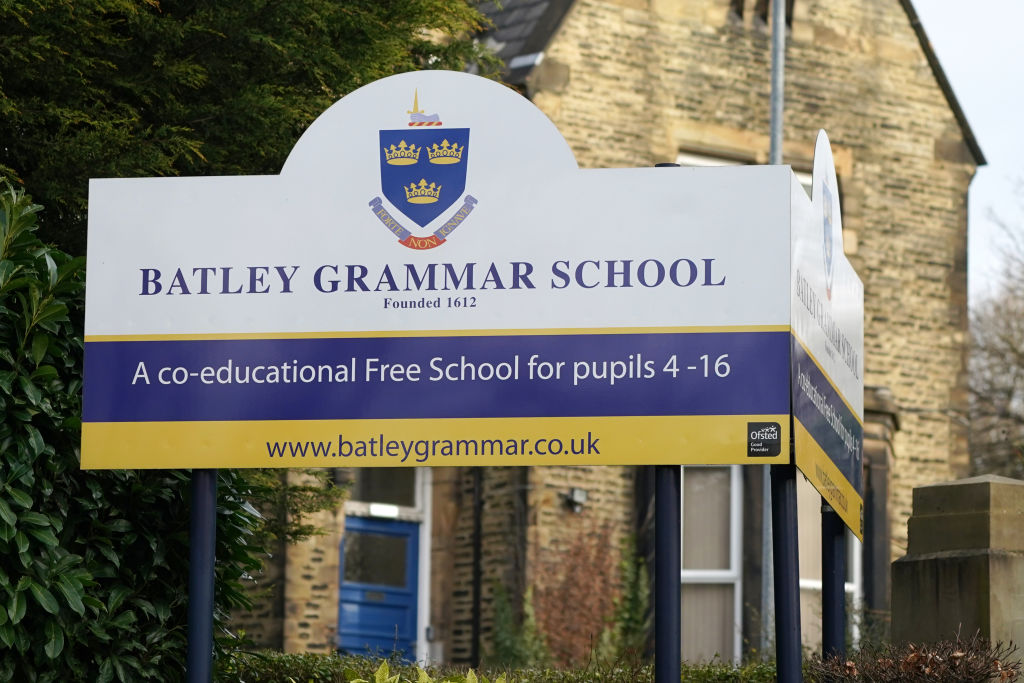As controversy continues to rage after pupils were shown an image of the prophet Muhammad by a teacher at Batley Grammar School, the primary beneficiaries will be violent extremists, both jihadist and far right. As a former jihadi extremist who once used similar circumstances to spew hate and spread dissension worldwide, I should know. But, here’s the truth: I couldn’t have cared less about the portrayal of the cartoon, and neither did those preachers I once worked with.
In the wake of 9/11, I ran Revolution Muslim, which was described as a ‘relay station for Al Qaeda’s broader message’. Then, in April 2010, when the writers of South Park announced the show’s 201st episode would portray Muhammad, we galvanised a response meant to incite terrorism and instil fear.
We issued a post on our website. It included an image of filmmaker Theo Van Gogh dead on an Amsterdam street. Under it was a ‘prediction’ that the South Park creators could suffer the same fate. We followed up with audio clips of a fatwa calling for the assassination of anyone who ‘defamed’ Muhammad, and an invitation for readers to ‘pay a visit’ to Comedy Central and the residence of the South Park creators.
In private, our concern was hardly about defending the religion. We were recruiting
Media coverage of the threat soon spanned the globe. Our website made the world’s top 100 for over a week. Indonesia and Pakistan threatened to shut down Facebook. A woman in Seattle started an ‘Everybody Draw Muhammad Day’ Facebook page in defence of free speech. And the South Park episode was pulled.
Inspired by our English-language glossy magazine, my colleagues Anwar al-Awlaki and Samir Khan issued the first edition of what they called Inspire. It included a ‘fatwa’ for the death of those that insulted the prophet, a call for the assassination of the woman that started the Everyone Draw Muhammad Day Facebook page (who is still in hiding) and an article called ‘Make a Bomb in the Kitchen of Your Mom,’ a recipe still used by jihadist terrorists today.
For me, it was the culmination of over a decade as a prolific propagandist that has been followed – since I served time in prison for conspiracy to solicit murder – by a decade working to deradicalise. Yet the impact of what I did led to the Charlie Hebdo attack, the beheading of a French teacher six months ago and similar recent attacks. These are consequences which I am ashamed of and which I will have to live with forever.
Later, the South Park episode aired, but the writers did not portray Islam’s prophet. Instead, in line with their creative genius, he was cast in a bear suit. Fundamentalist Islamic scholars could have spent months debating whether this violated such caricatural prohibition at all. But for us, it did not matter. Playing victim and portraying ourselves as heroes was something we knew was without nuance, manipulative and would likely have deadly consequences. That is the art of propaganda. The end justifies the means. The protestors calling for the Batley Grammar teacher’s dismissal and those demanding a criminal investigation might not know it but they are acting in the same vein. There is no indication the caricatures were shown to do anything more than spark critical thinking and debate. But such topics are too sensitive these days.
Unfortunately, some Muslims have been taught that causes like these are noble and part of their religion. But the truth is that leaders promoting these campaigns only care about controversy. I worked with many charismatic preachers, including Anwar al-Awlaki, Omar Bakri Muhammad, Anjem Choudary, and Abdullah Faisal. In private, our concern was hardly about defending the religion. We were recruiting. The eventual criminal indictment against me documented a call between myself and an accomplice that stressed how the fatwa calling for Salman Rushdie’s death was a ‘tremendous help in radicalising’ Muslims, and hoped that the South Park controversy might do the same.
Whether violent jihadist or non-violent Islamist, the activists and organisations that act out with such sanctimonious zeal do the same. Their gains include money, notoriety and broader support for their own ambitions to re-establish a theocratic Islamic state.
However, a response of anger and protest without nuance only facilitates further polarisation and division, arming Islamophobes with jibes about the ‘barbarism’ of Islam and pressuring Muslims to remain committed to medieval fundamentalist interpretations. Such efforts supplement the victimhood discourse that feeds radicalisation and create ‘us-versus-them’ tropes to provoke would-be terrorists.
I now reverse-engineer my experience to combat extremism, and help foil Bin Laden’s dream – inducing the collapse of western civilisation from within. Perhaps the greatest takeaway has been to value liberal democratic society, no matter its flaws, and to appreciate how much its flourishing and sustainability has been contingent on the ability to express and discuss controversial ideas. Today, however, a pervasive hysteria that promotes censorship as safety, silences debate and highlights any contentious perspective to serve as the basis for a cancel-culture crusade mimics the strategy and manipulative tactics I used as a jihadist, and unwittingly leaves violence as the only recourse.
Living in a free society means getting comfortable with the uncomfortable. John Stuart Mill once said that, ‘If all mankind minus one were of one opinion, mankind would be no more justified in silencing that one person than he, if he had the power, would be in silencing all of mankind.’ Similarly, a principle in the Quran states that, ‘whosoever kills a person, unless for murder or corruption in the land – it is as if he had slain mankind entirely’. We should contemplate these sentiments as the latest caricature controversy unfolds.
Jesse Morton appears on Andrew Gold's On The Edge podcast. You can listen to the episode here






Comments